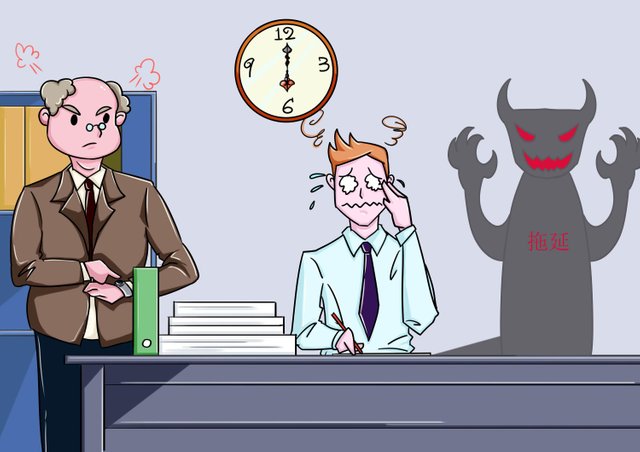Fallibility is a natural human weakness. No matter how advanced the technology, accidents will happen, and the better we solve problems, the worse the trouble.
There is always the possibility that anyone can make mistakes in everything, even if the probability is very small, and the frequency of such small events is far higher than our common sense would assume.
So how can we reduce the probability of errors?
The Titanic's builders claimed it was a ship that would never sink, but it still struck a glacier off east Provyence, far from the ice dense areas.

It was thought to be so unlikely that there were not many lifeboats on the ship.
However, the disaster of the great ship was warned long ago, but people were too careless.
In 1898, the English writer Morgan Robertson wrote a novel called Titan's Death.
It tells the story of the Titanic, a giant cruise ship that sank on her maiden voyage after hitting a glacier due to heavy fog.
The story also intersperses the love story of the passengers, and the human tragedy of separation.
Fourteen years later, in 1912, Britain built the Titanic luxury liner, which set sail from England on April 10 of the same year on its maiden voyage across the Atlantic to New York.
The largest and best equipped ship that has ever been built.
After four days of sailing, it hit a glacier and sank, just as in Robertson's novel.
No matter how smart a human being is, he can't do everything perfectly, just as all programmers can't guarantee that they won't make mistakes when they write a program, but humans have a habit of taking chances and assuming that unlikely things won't happen.
Wall Street firms, for example, have hired mathematical brains from the nation's top universities to create computerized trading systems for the stock market.
In theory, computer trading crashes occur only once every 100,000 years.
But in the summer of 2007, the system crashed, and Goldman's global allocation actually lost $1.4 billion in one week.
The big boys on Wall Street are blindside, so life isn't lucky all the time, any one thing.
As long as there's a greater than zero probability of an error, we can't assume it won't happen.
Anyone who thinks he won't let his guard down will sooner or later stumble over the rock he once narrowly avoided.
This phenomenon is so common that it has a technical name: Murphy's Law.
Murphy's Law is a psychological effect developed by engineer Edward Murphy in 1949.
There are four main points.
Nothing is as simple as it seems.
- Everything takes longer than you think.
- Anything that can go wrong will go wrong.
- If you worry about something happening, it's more likely to happen.
Murphy's Law, at its core, says if something can go wrong.
No matter how small the odds, it will happen.
The longer you live with Murphy's Law, the more you realize that it holds the earth so tightly that you can't avoid it.
In layman's terms, this law is simply the law of bad luck. As long as there is a possibility, things will always go the wrong way.
Murphy's Law seems, at first glance, to have an air of fatalism and pessimism. Anything can go wrong, and since it will, can we just sit back and wait for tragedy to happen?
Do we spend so much time and energy talking about such a nuisance, just to prove its existence?
Of course not. What we really need to do is to see through the exaggerated expression of Murphy's Law and understand the positive meaning behind bad luck.
Murphy's Law is not a probabilistic theorem that emphasizes human error. It produces a kind of inevitability in accident. Being prone to making mistakes is the innate weakness of human beings, no matter how advanced technology is, some misfortune will always happen.
And the smarter we get at it, the more trouble we're in.
Before we do anything, we should think as thoroughly as possible, because you can never be God, you will be punished when you are arrogant and ignore the possibility of mistakes.
Murphy's Law can help prevent our ignorance if we can admit it.
If an accident or loss does occur, learn to smile and try to sum up the mistake, rather than trying to cover it up.
Life can not always be smooth, but if you can variety.
Is a small probability event, less fluke mentality, more positive thinking, will reduce a lot of regret.
So exactly how to correctly understand and use Murphy's law, understand his meaning, as a reminder of our vigilance at any time the alarm bell, nip in the dark?
We've crafted murphy's Law for you to avoid the 20 pits of bad luck in your life.
Start with the appearance of murphy's Law, which is interesting, sad and inexplicable in your life, and reveal the truth of the facts and the rules of how things work, so that you can live cautiously and avoid the pits that bring you bad luck in your life.
You will understand Murphy's Law, so that you will no longer be a bad luck;
You'll learn how to maneuver and avoid becoming fodder for workplace battles.
You will overcome your shyness and cowardice and become a winner in life.
You'll learn how to take advantage of opportunities, say no to unreasonable demands, and direct your efforts in the right direction.
You'll understand why it's important to make a first impression, why people don't like to hear about your glorious history, why you're perfect and have trouble making friends, etc.
After all, mistakes are as much a part of the world as we are.
We must learn how to accept our mistakes and continue to learn from them in order to effectively avoid pitfalls at work and in life and make our lives smoother.